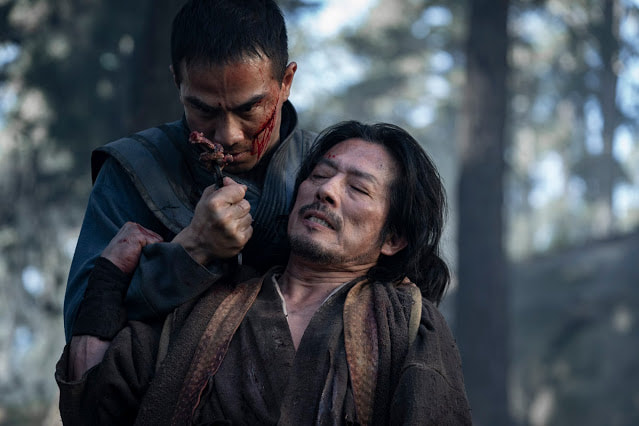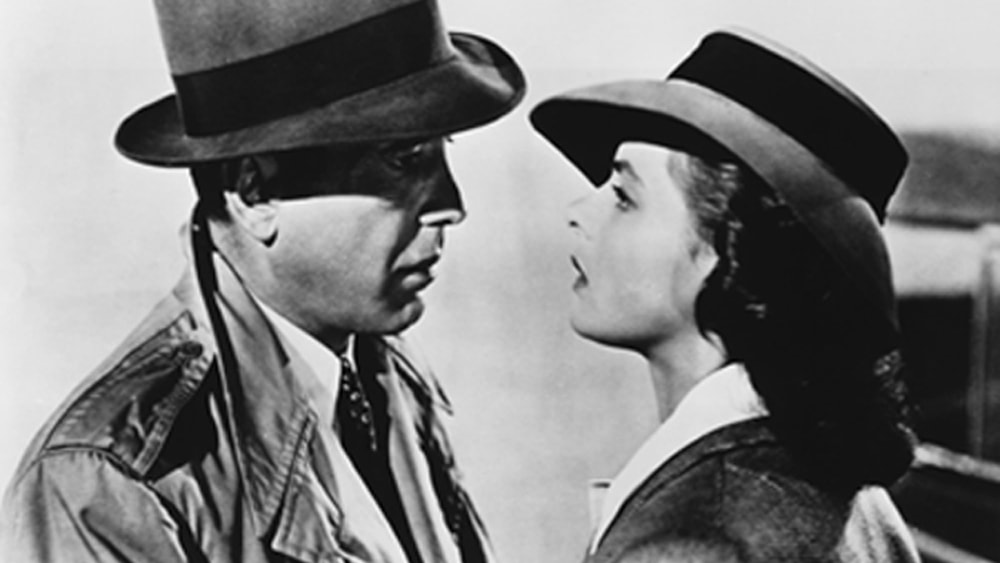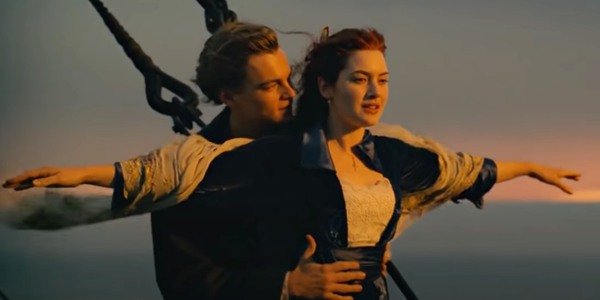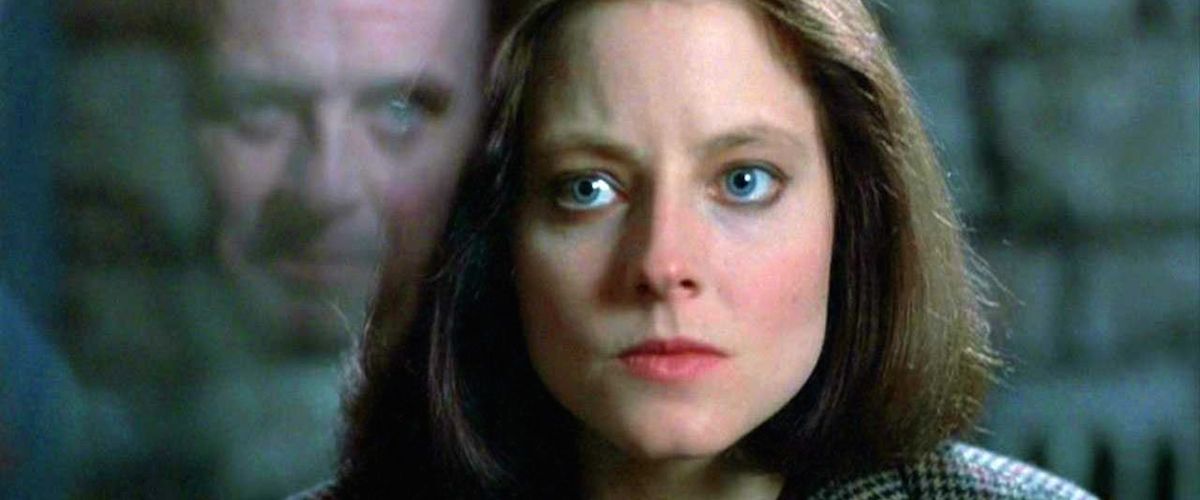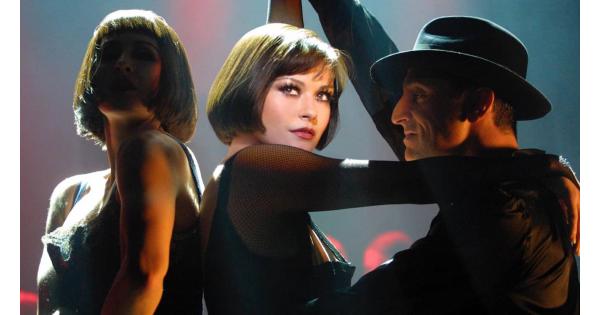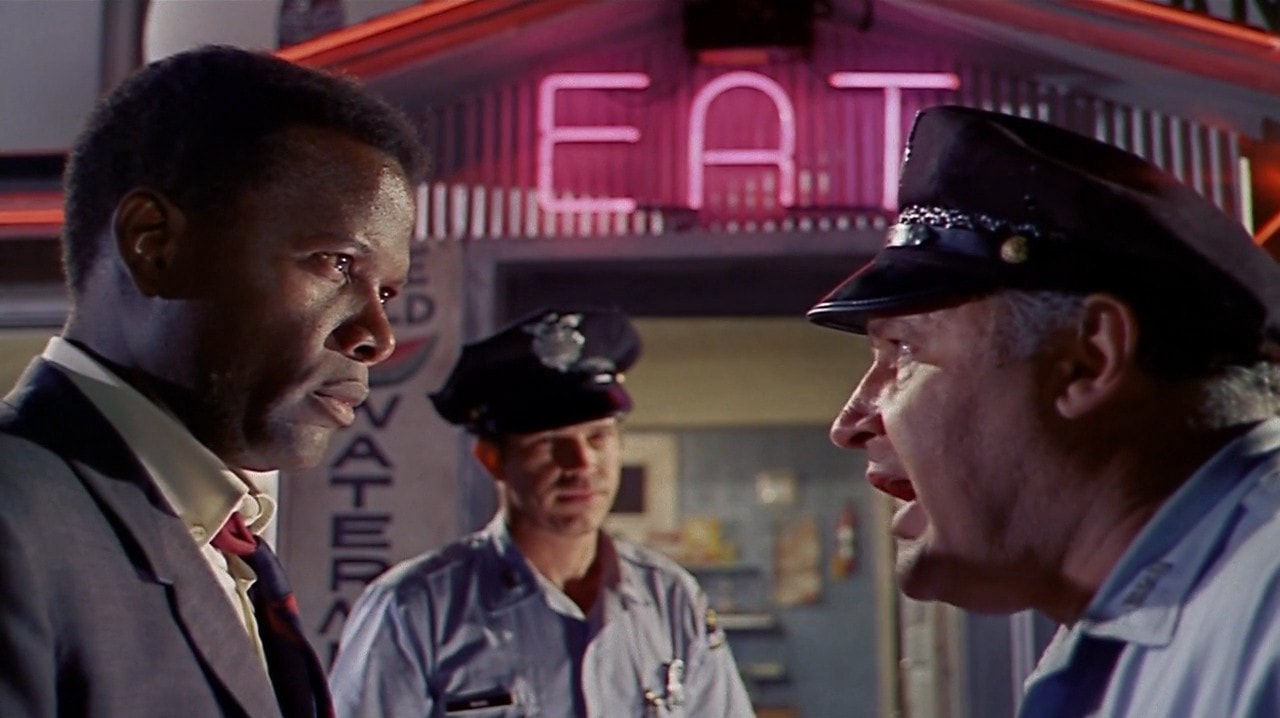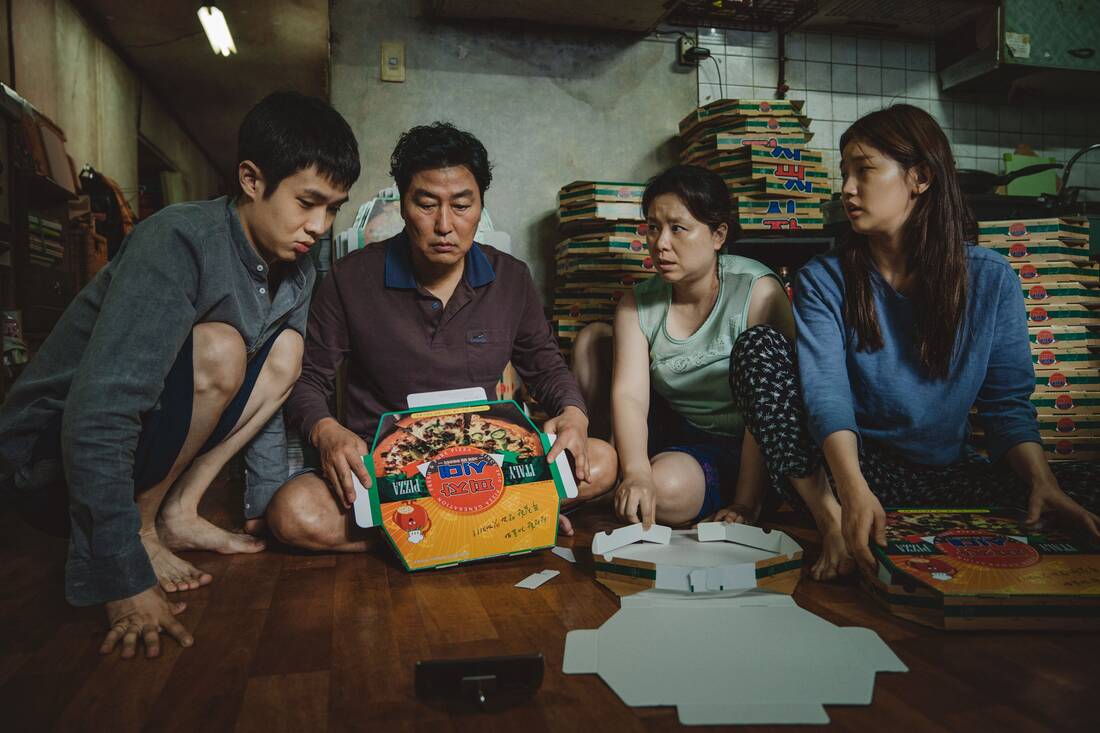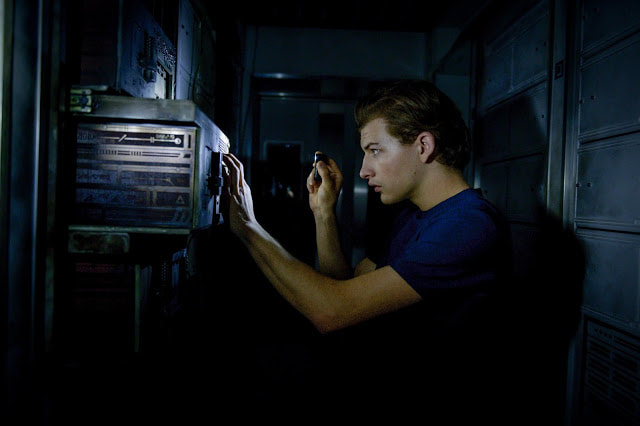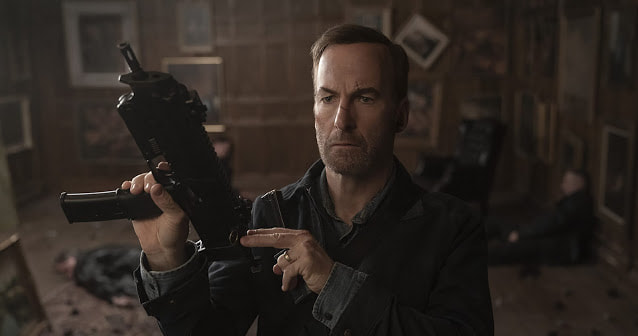|
by Philip Price Director: Simon McQuoid Starring: Lewis Tan, Jessica McNamee & Josh Lawson Rated: R Runtime: 1 hour & 50 minutes I don't know if it's due to going without movie theaters and therefore big-budget blockbusters for nearly a year, but between this and "Godzilla vs. Kong" it has been a pleasantly surprising return to the tentpole extravaganzas that had become almost too common to pre-pandemic life. That isn't to say 2021's "Mortal Kombat" is anything more than someone with the loftiest of expectations might hope it to be, but it's an assured piece of both filmmaking and storytelling that knows what it is, embraces everything about its own ridiculousness, and runs with all of it to the point it almost forces viewers to genuinely care about what is going on with this silly yet compelling multi-dimensional death battle. Of course, one's level of enjoyment with the film may come from their affection for the now iconic video games and its catch phrases that have made their way into the everyday lives of an entire generation. Some enjoyment (or complete distaste for, honestly) may come from the nostalgia-tinted glasses those who loved the nineties movie adaptations still wear, but even if you're an audience member with little to no brand recognition or fondness for the property what is both slightly unexpected but also an advantage to this new iterations success is that Greg Russo (his first feature) and Dave Callaham's (2014's "Godzilla," "Wonder Woman 1984" and the upcoming "Shang-Chi") screenplay makes it an accessible adventure for anyone inclined to see what all the fighting is about. That is to say, Russo and Callaham build out the worlds "Mortal Kombat" encompasses in a simple and straightforward fashion that doesn't overwhelm the audience with too many levels nor does it dig too deep into the politics of the tournament itself, but instead takes what everyone loved about the games and puts them front and center: the characters. I'll backtrack slightly on this point as the film does introduce a new character into the "Mortal Kombat" mythos with its main protagonist Cole Young (Lewis Tan), but other than providing this surrogate who will take the audience through and into this universe the movie is otherwise all about bringing these characters viewers will recognize to life in what is ultimately fun and entertaining ways. Sans a pretty impressive opening sequence that admittedly sets the bar too high for the nonsense that follows, nothing about director Simon McQuoid's film is what one might label as "good", but almost everything about what it does in service of re-capturing that feeling of sitting in front of your cousin's tiny TV in their bedroom and mashing buttons in hopes it will result in a combination that will defeat said cousin in a bloody battle to the death is one thousand percent enjoyable.
McQuoid, who is an Australian filmmaker, marks his feature debut with "Mortal Kombat," but the man has apparently cut his teeth shooting commercials for the likes of Apple, HBO, Netflix and Mercedes which makes sense when the studio is looking to adapt a property largely based around a fantasy-themed fighting game where matches could last anywhere from a few seconds to half an hour. Given I probably haven't played a "Mortal Kombat" video game since the original in 1992 it's difficult to remember how much of the mythology and backstory included in the movie versions originated from the game itself. Nevertheless, McQuoid's biggest advantage with his adaptation is the fact he was given the freedom to make an R-rated "Mortal Kombat" movie whereas the two previous films were held to PG-13 ratings. It only makes sense a "Mortal Kombat" movie would be given free rein with its action sequences given the original games were responsible in part for the creation of the video game rating system. In other words, fear not - there are plenty of "fatalities" in store. I bring up McQuoid though because despite having such freedom he doesn't take this to mean he will run the movie off the rails (not completely, anyway) and instead balances the right amounts of both the brutal and the extravagant. For example, yes there is a scene in which Josh Lawson's Kano (a true standout) - who is a mercenary with the "Black Dragon" clan - rips the heart out of an invisible monster dragon that I'm still not sure the origin or purpose of other than for Kano to in fact rip its heart out and deliver a certain line of dialogue, but there is also the aforementioned opening sequence in which Hiroyuki Sanada as Hanzo Hasashi and Joe Taslim ("The Raid") as Bi-Han/Sub-Zero battle it out with a beautiful Japanese forest as their backdrop which somehow feels almost as poetic as it does merciless. McQuoid lets the movement of the fighters rather than his camera do the work and therefore they are the ones making the biggest impressions. The combat is brutal, but the implications of its outcome and the cruelty it shows Sub Zero is capable of is almost more so. Not only do such moments balance each other out, but they give a clear indication to McQuoid's approach to the material which is to seemingly deliver on the near gross-out levels of barbarity involved in these "fatalities" yet also manage to somehow make the human characters as authentic in their struggles as possible...even when it comes to holding the key to their world's freedom from other dimensions by participating in a martial arts tournament. Beginning with that centuries old, Japan-set confrontation between Hasashi and Sub-Zero that lasts a solid 12 minutes before the title screen epically appears (I love a great title card) Russo and Callaham's "Mortal Kombat" establishes this rivalry to carry into the present day where the introduction of Tan's Cole and his mysterious "birth mark" signal that his lineage is key to this rivalry and how it is far from over. As with the opening fight sequence, McQuoid introduces his hero through a set piece that this time involves an MMA-style cage fight which is almost just as visceral as the first, but more than anything makes it clear Tan may have been Power Ranger-ed in that he was hired more for his martial arts skills than his acting chops. Fortunately, this doesn't matter much for, while Cole is undoubtedly the hero of the piece, the movie doesn't take long to pick up the pace as Mechad Brooks' Jax (charming as all get out) shows up to recruit Cole shortly after getting his ass kicked in what appears to be a pattern of him taking a beating for some quick cash. Jax is a Special Forces Major who somehow bears the same strange "birth mark" Cole was born with which is actually just the Mortal Kombat logo - solid chuckle. After Jax enlightens Cole and his family (Laura Brent as the wife and Matilda Kimber as the daughter) to the fact other realms exist and that Outworld's Emperor Shang Tsung (Chin Han) has sent his best warrior to hunt Cole down Sub-Zero shows up on Earth and starts causing all kinds of mayhem. Jax gets a quick origin story of sorts that gives the character an actual arc to work with while Cole is directed to find Jessica McNamee's Sonya Blade who is hiding out in Indiana, keeping Kano as a prisoner, and researching the meaning of the dragon marking and how it's intertwined with the fate of their world. At the behest of Blade, Kano agrees to show her and Cole the way to Lord Raiden's temple which he somehow conveniently knows the location of despite it being a mythical sanctuary of sorts that Blade verbatim states is where, "legends used to train there for mortal kombat," and that, "no one knows where it is." Kano though, has apparently been running guns through it because the "locals won't shut-up about it." We'll mark this astronomical leap in logic as a bit of the extravagance referred to earlier as it sets our heroes on a path to Tadanobu Asano's Raiden the Elder God AKA the protector of the Earth realm where other experienced warriors such as the extremely ripped Ludi Lin's Liu Kang and Max Huang's Kung Lao or the guy with the coolest hat in the history of hats have also been training. It is here they will prepare Cole to face the enemies of Outworld in the titular battle for the universe. And it is with those last few sentences of the previous paragraph that it's not difficult to see how easily a "Mortal Kombat" movie could go completely off the rails (see also 1997's "Annihilation"), but even as the new film begins to bring in more fantastical characters and creatures largely through Outworld's roster of champions it's nice to see the Earth-side champions are genuinely surprised by the existence of these other realms and the apparent incoming status of their own super powers. While the arrival of antagonists like Mileena (Sisi Stringer) who sports a nasty mouth full of razor sharp teeth and an even sharper tongue, Nitara (Mel Jarnson) who ends up being the Slipknot of this movie, along with the likes of Kabal (Daniel Nelson), General Reiko (Nathan Jones), and of course the completely CGI Goro will undoubtedly alienate large portions of a potential new audience they will bring in just as many of the faithful followers. The significance of the inclusion of these more grotesque baddies is not for the sake of faithfulness to source material, but more for allowing that slight sense of authenticity in our military veteran with robot arms, his femme fatale of a partner, and the monks they meet along the way who throw fireballs and razor-sharp hats. Viewers, regardless of their history with the franchise though, are really showing up to see these characters fight and the film - from that previously mentioned opening sequence through to the climactic battles that mirror the set-up of the game in such a way it's hard to imagine any longtime fan's expectations not being met by these thrilling live-action vignettes - more than delivers on this expectation; McQuoid's fight scenes conveying as much meaning as those with dialogue. Additionally, Russo and Callaham's story has a real hold on the stakes and ongoing semantics between the characters and while they've clearly been instructed to build a potential franchise, what they deliver here is a well-paced, self-contained, and engaging balance of set pieces that are connected by just enough exposition for viewers to develop that investment. For me personally, someone who played the games, but wasn't obsessed and who hadn't seen the previous films until recently, 2021's "Mortal Kombat" elevates these characters to a cinematic level on which we haven't seen them before especially when it comes to two ninjas - one who can control fire and one who can control ice - and their centuries-long grudge that allows for these larger than life characters to somehow feel personal. Also, the movie gets major bonus points for organically integrating the kick-ass video game music.
0 Comments
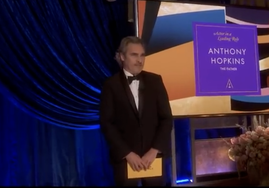 Screenshot Screenshot by Julian Spivey Indignant laughter isn't how I expected to finish the 93rd annual Academy Awards, but that's certainly how it ended. The Academy Awards, produced by a team led by director/producer Steven Soderbergh, got exactly what they deserved when they broke with tradition at this year's awards ceremony in an effort to set up an emotional finish and wound up effectively with no ending at all. The Oscars is rarely a fun watch, even for somebody who's an entertainment buff like myself, especially after the Academy decided to do away with comedians hosting the televised ceremony. I felt the night was mostly on-track for its first three hours - there were things I liked (not playing off the winners during their acceptance speeches, because it's incredibly rude) and things I didn't (the one time the Oscars tried to do the usual "fun" thing when Questlove and Lil Rel Howery did an Oscars song trivia game at a quarter to 10 p.m. central time was not what I wanted to see when things should've been wrapping up). Then things went off the rails in its last half hour when Soderbergh did the most unusual thing I've ever seen watching the Oscars - he didn't schedule Best Picture (the award ceremony's biggest honor) for the final award of the night. Best Picture was announced before the Best Actress and Best Actor categories. I was immediately shocked, but more so off-put. I know it's just an award show and many will likely find this a bit much, but not saving Best Picture for the final moment of the telecast felt like a huge slap in the face to the history of the Oscars and to the film industry in general. I felt it was disrespectful to do so. It was effectively the Academy saying that movie stars are more important than the whole of the film, which I found insulting. I immediately knew what the Academy and Soderbergh (and I don't know if this decision was either/or or a combination of the two) was going for. They wanted to end the evening with the emotional high of Chadwick Boseman posthumously winning Best Actor for his performance in "Ma Rainey's Black Bottom" and to presumably have an emotional acceptance from Boseman's widow Taylor Simone Ledward, like she gave at the Golden Globes ceremony earlier this year. So the best film of the year according to the Academy, which was director/writer Chloe Zhao's (who made history as the second female director and the first of color to win Best Director earlier in the evening) "Nomadland" was left playing second fiddle to the Best Actress (which was a seemingly wide open contest that wound up going to Frances McDormand of "Nomadland") and Best Actor. I thought Boseman's performance in 'Ma Rainey' was terrific and felt like he would probably win the Oscar as he had won the majority of the Best Actor honors given during "award season." I won't say he was the most deserving because I haven't seen all of the nominated performances and don't believe anybody can say someone's most deserving without having done so. It's important to note that only the accountants that tabulate the votes know the names of the winners within the envelopes opened on the night of the ceremony (which is how it should be), so manufacturing the category order during the telecast comes with some risk. The Academy found that out the hard way on Sunday night (April 25) when last year's Best Actor winner Joaquin Phoenix for "Joker" ripped open the Best Actor envelope and announced the winner was Anthony Hopkins for "The Father." Hopkins, who doesn't really seem like the award ceremony type of guy, wasn't even at the venue or via zoom to accept his honor. The Oscars telecast, which was manufactured to end with this emotional finale, ended with a "Anthony Hopkins could not be here tonight, I'll accept this award for him" (or something like that I was laughing to loud to actually hear it) and went straight to the end credits. It's a finish that'll have Oscars viewers talking for years to come for a variety of reasons (some are just angry Boseman lost), which if that was Soderbergh's intention when the usual order of the night was joggled than he succeeded. But I think it was a fitting way for this year's ceremony to end after they showed such disrespect to the night's biggest honor. by Julian Spivey & Tyler Glover "Casablanca" - Best Picture (1943) Simply put "Casablanca," directed by Michael Curtiz, might be the greatest Hollywood movie ever made. The history of the Academy Awards is littered with all-time great films that missed out on Best Picture, but the Academy certainly didn't miss on this one in 1943. Everything about "Casablanca" is perfect. The direction, screenplay (which is likely the most quotable in film history) and performances (especially the leads by both Humphrey Bogart and Ingrid Bergman - how did neither of them win Oscars for this film?). "Casblanca" is the only film I've seen multiple times in which I come to love it more and more with each viewing. JS Titanic - Best Picture (1997) When someone says the term a typical Oscar movie or asks what an "Oscar" movie is, my mind always goes to "Titanic." However, during production, many forecasted the movie would be the biggest flop of all-time. There were so many delays and problems on-set that it would appear to be a disaster ... but when the film came out, it proved to be a different story. "Titanic" tells the story of the maiden voyage of the R.M.S. Titanic from Southampton, England to New York in April 1912. The ship was deemed to be "unsinkable" but after hitting an iceberg on April 14 at 11:40 p.m., the ship would sink killing thousands. In the film, Jack is a poor artist seeking a new future in America while Rose is a wealthy socialite trapped into marrying a man she doesn't love to keep her family's status. Jack and Rose meet and fall in love just before the iceberg is hit and must battle to stay alive and hopefully be together. The film is tied for the most Oscar nominations all-time with 14 and most Oscar wins with 11. “Titanic” is absolutely breathtaking to watch. It has beautiful production, sets, costumes, stunning visual effects, excellent cinematography, and fantastic performances from Kate Winslet and Leonardo DiCaprio (Rose and Jack). The film also has beautiful music and is everything an Oscar movie should be. TG The Silence of the Lambs - Best Picture (1991) Some people consider Jonathan Demme's 1991 "The Silence of the Lambs" to be the first horror picture to ever win Best Picture at the Oscars, but it's truly more of a psychological thriller. "The Silence of the Lambs" joined Frank Capra's "It Happened One Night" and Milos Forman's "One Flew Over the Cuckoo's Nest" in Academy Awards history as the only films to ever sweep the major categories winning Best Picture, Best Director, Best Actor, Best Actress and its screenplay award. The story is incredibly thrilling with FBI newbie Clarice Starling (Jodie Foster) teaming up with the brilliant, but cannibalistic serial killer psychiatrist Hannibal Lecter (Anthony Hopkins) to help find a terrifying serial killer who skins women and makes clothing out of them. The winning performances by Hopkins and Foster are among the greatest in cinema history. Everything about "The Silence of the Lambs" is amazing. JS Chicago - Best Picture (2002) The film that got me really interested into following awards season as a whole was 2001's "Moulin Rouge!" That film kicked off a movie musical Renaissance of sorts for the start of the 21st century. These films include "Hairspray," "Sweeney Todd," "Dreamgirls," "Les Miserables," "La La Land," and 2002's "Chicago." When "Moulin Rouge!" lost Best Picture and had to settle for an Art Direction and Costume Design Oscar, I was heartbroken. After going to see "Chicago" in theaters on the same day as the Oscar announcement, I knew this film had to win! I felt this way not only because of how brilliant the film was but in a way, it was righting a wrong since "Moulin Rouge!" deserved to win. The story set in 1920s Chicago follows Roxie Hart, played to perfection by Renee Zellweger, as she struggles to become a singer. After she kills her lover in a rage, Roxie has to defend herself with the help of her lawyer, Billy Flynn (an Oscar snubbed Richard Gere). She tries to befriend her idol, Velma Kelly (Catherine Zeta-Jones), who is also awaiting trial for murder. They battle for attention and fame from the press and hope to get off for the crimes so they can pursue their careers. "Chicago" is one of my five all time favorite Oscar wins because it is all spectacle and everything a good Best Picture winner is. It has spectacular direction, production design, cinematography, costumes, and all of its' major characters received Oscar nominations except for Richard Gere. In my opinion, he should have been there. This film deservedly won Best Picture and remains one of my favorite wins of all time. TG Robert Duvall - Best Actor (1983) I've always loved naturalistic acting - the kind where if you didn't know the person performing was famous you might think you were watching a documentary. That's the kind of real-lived in performance Robert Duvall gives as alcoholic former country music star Mac Sledge in director Bruce Beresford's 1983 drama "Tender Mercies." Duvall gives a masterclass in acting. JS Julia Roberts - Best Actress (2000) By the time Julia Roberts starred in "Erin Brockovich," she had already been a "Pretty Woman," served "Mystic Pizza," went to "(Her) Best Friend's Wedding, and broken our hearts as the tragic Shelby in "Steel Magnolias." Roberts had proven herself to be a huge movie star. By the time "Erin Brockovich" came out, it could have felt like an opportunity to give Roberts a career award. However, this would not be the case. Even if this was her first film, Roberts would have deserved the Oscar. In "Erin Brockovich," Roberts plays the titular character who fought against the energy corporation Pacific Gas and Electric Company (PG&E) over their involvement in groundwater contamination in Hinkley, Calif. Roberts plays Erin with a firecracker and a take-no-nonsense approach and shows what kind of lawyer we will all need when they are needed. The best scene in the film is when they are meeting with opposing counsel for a possible settlement and after they give a lame offer, Erin lets one of the other lawyers know that the water she is about to drink was brought from the contaminated water in Hinkley. TG James Cagney - Best Actor (1942) James Cagney had made a name for himself portraying gritty gangsters in early talkie films like "The Public Enemy." It had gotten to the point where Cagney felt he was typecasted and wanted to show the world what else he could do. His role in director Michael Curtiz's 1942 "Yankee Doodle Dandy" biopic of playwright and composer George M. Cohan showed the world a whole other side of Cagney. In a role that included singing and incredible dance sequences Cagney absolutely slayed and would take home Best Actor at the next Oscars. One of my all-time favorite movie scenes is Cagney tapdancing down a flight of stairs at the White House. JS Olivia Colman - Best Actress (2018) During the 2019 Best Actress race, it appeared that Glenn Close was finally going to get her Oscar after six nominations with "The Wife." She won the Golden Globe, Critic's Choice (in a tie with Lady Gaga) and SAG. However, on Oscar night, the envelope was read and Olivia Colman was the winner for "The Favourite." Colman was as shocked as everyone else and gave one of the best acceptance speeches in Oscar history. She was absolutely hilarious and made people laugh just as hard as they did at her performance as Queen Ann. In "The Favourite," it is 1711 and Great Britain is at war with France. Queen Anne, played exquisitely by Colman, is not in great health and shows little interest in actually governing. That is left to her advisor and lover, Sarah, played by Rachel Weisz. Chaos ensues when Sarah's cousin, Abigail, comes to the castle vying for Queen Ann's attention and affection. Olivia Colman's performance here interested me in following her career. I have loved her in "Fleabag," "The Crown" and her Oscar-nominated performance in this year's "The Father." If you ever ask me which one, I like the best though, this one is definitely my "favourite." - TG In the Heat of the Night - Best Picture (1967) I feel like Norman Jewison's 1967 film "In the Heat of the Night," about race and crime in small-town Mississippi and the working relationship between black big city detective Virgil Tibbs (played by Sidney Poitier) and a prejudiced, hicktown police chief Bill Gillespie (played by Rod Steiger - the role which would win him the Best Actor Oscar) is not a very cool favorite Oscar winner choice because many believe it shouldn't have beaten Mike Nichols' "The Graduate" or Arthur Penn's "Bonnie and Clyde" for Best Picture. I freakin' love this movie though, and believe it was an important Oscar win for its time with Civil Rights strife still rampant in the American South. I also like the relationship that forms between the two leads and shows if people just take the time to get to know one another we might all just get along. JS Parasite - Best Picture (2019) One of my favorite Oscar wins is definitely last year's winner for Best Picture, "Parasite." During the last Oscar season, the momentum seemed to suggest that the war epic, "1917," was the one to beat. It definitely was an incredible film that used a one shot aspect to make us really believe and be put right in the middle of World War I. However, in preparing for Oscar season, I sat down and watched "Parasite" with no real expectations of what the film would be and it blew my mind. The film grabs you from the first frame and ends up throwing plot twists that truly make you feel like you don't know what is going to happen next. Movies like this are so exciting for me! This film follows the Kim family. They live in a small apartment but when Ki-woo gets a job as a tutor to a wealthy family, the other family members manipulate their way into working for the same family with them unaware of the connection. Mayhem ensues and we are on a roller-coaster that is in no way going to end well. "Parasite" became the first foreign language film to win the Best Picture Oscar and it proved that fantastic films are made in all languages and all should be given equal consideration. TG
by Philip Price Director: Neil Burger Starring: Colin Farrell, Tye Sheridan & Lily-Rose Depp Rated: PG-13 Runtime: 1 hour & 48 minutes A quick 10 minutes into the latest from writer/director Neil Burger and we're hit with the question of how fair or unfair is it that people don't get to choose the environment or the situation they're born into. It's unfair, of course, that some are born into wealth and privilege while racism, misogyny, poverty and countless other disadvantages are intrinsic to the existence of others from the day they're ushered into this world. This is a typical conclusion when assessing systems and how each individual entering that system, by choice or not, has a different starting line. These cut and dry conclusions, as unfair as they may be, are still very much a fascinating topic though, especially when considered in the context of children being created in a lab and curated from the time of their birth for a single purpose, a purpose they solely exist to serve, and a purpose they have absolutely no say in. That they were born from donors and not loving parents willing to take on the responsibility of their nurturing is the first disadvantage they face, but that they are then expected to simply conform to the needs of the previous generation and sacrifice their own sense of purpose for the mistakes of those elders is the next daunting reality they have to accept. Thus is the premise of Burger's “Voyagers,” a science fiction action/drama that like any good piece of science fiction works best when it's exploring its main idea or concept and the questions that spurn from as much rather than trying to answer them. That said, what Burger is attempting to cover here is engaging ground nonetheless as he dives into the deep, dark void of space in order to isolate ideas around nature versus nurture and if the wiring and influence of these subjects' genetic inheritance is enough to guarantee they not only have the intelligence and ingenuity to complete their mission, but the willpower to avoid the predictable foibles of human nature. What these children are born into, what they are tasked with, and what is expected of them is not fair and one would be hard-pressed to find anyone that didn't agree with that assessment, but the fact remains no one is granted the opportunity to choose what they're born into though there is still the choice of what type of person they want to become no matter the circumstances. “Voyagers” seeks to examine the necessary balance of innocence and experience required to fully grasp the possibilities of this line of thought via the guise of a genre film that sports sleek sets and pretty people that thankfully succumbs more often than not to the whims of its notions than to the trappings of its brand.
Opening with the literal joining of a sperm and egg from a Nobel laureate in physics winner and an MIT bioengineer we are told that the Earth has grown hotter and that drought and disease have begun to ravage the population. As a result, scientists have begun looking for a new planet that can sustain human life and by the time the film begins we are told that in 2063 they found one such planet, but that it will take an 86 year "voyage" to reach this habitable environment. These carefully selected embryos were created so that they might be raised as the first-generation crew of this voyage to a new world. Trained in isolation so no connections with Earth were formed these children were meant to be sent into space alone as early as possible. The crew would embark on this scouting mission with the knowledge they will be the link between the past and the future, that they are being entrusted with the survival of the human race, and that through their participation in artificial fertilization and incubation they will have children aboard this ship and that it will be their grandchildren who, at the end of the aforementioned 86 year journey, will determine if this newly discovered planet is in fact inhabitable. There is concern from upper management, as embodied by Colin Farrell's Richard, that while there is complete confidence in this crew's capabilities, they will inevitably still encounter challenges along the way. Given Richard has been a key figure in their development thus far he elects to go on this one-way trip with them, serving as the inaugural Captain. What this crew doesn't know is that they're being drugged in order to suppress their personalities. Ten years after launch these now teenagers begin to realize they are dull, docile individuals whose sexual desires and pleasure responses have been repressed for the sake of the mission's success. One can imagine the anger this might stir up in a 17-year-old - not only for the lack of sensation they're being deprived of, but by virtue of the rebellion inherent to this stage of development. So, it is only natural that upon learning they are being controlled that they begin to revolt and further speculate about how else they're being lied to. When coming face to face with the full scope of the purpose of their existence it's not difficult to understand why many of these teenagers view their existence as unimportant or if at least important in the scheme of the success of the mission how their existence doesn't feel meaningful in any personal sense. It is at this point that Burger queues up the melodrama. The first 45 or so minutes of the film is genuinely intriguing with multiple contemplative conversations happening around the creation of these character's lives and their purpose. They explore if genetic donors are the same as parents if they still get their natures from them as well as if what is referred to as "the blue" (the drug they're required to drink) is meant more as a repressor of their sexual desires and sensations or if it is more positioned to help deal with living the way they've been forced to live. These kinds of musings paired with the classic existential questions of what's out there, why are we here, and where are we going lead to a few narrative strands strong enough to survive the imminent arrival of the consequences these actions and considerations have wrought. It's not that the film turns into ‘Murder Aboard the Spaceship Express’ or anything, but there is murder, double crossings, a struggle for power, and all the things that would seemingly offer tasty drama. In the context of Burger's film and screenplay though, these genre trademarks only seem to get in the way of getting at the heart of what the writer/director actually wants to discuss. Burger, who helmed the star-affirming Bradley Cooper vehicle “Limitless” utilizes many of the same techniques he used in that film to display someone accessing 100 percent of their brain's abilities to also actualize what it feels like for these teenagers when finally in full control of their own feelings and desires. Burger is essentially combining his experience with the young-adult soap operas that he garnered from helming the first installment of that doomed ‘Divergent’ series with that of the bag of tricks he used on “Limitless;” almost as if fulfilling what he wasn't able to finish in that YA franchise. Nonetheless, the problem “Voyagers” encounters after pushing past its focus on Richard and his conflicted relationship not with the mission, but with the treatment of his crew is that Farrell's character is more engaging and more well-realized than the majority of the group of teenagers onboard. Led by the trio of Christopher (Tye Sheridan), Zac (Fionn Whitehead), and Sela (Lily-Rose Depp) each are given something akin to stock characters with Sheridan as the hero, Whitehead as the mostly flavorless villain, and Depp as the strong foil who's capable in her own right, but largely viewed only as a prize. The exception here is Chante Adams' Phoebe who is the real hero of the piece with her ability to look forward instead of only existing in the moment as well as for her sense of defiance and courage to stand-up to those who oppose her. Maybe it's simply that Phoebe is a better person than Zac or that she's clearly more mature than Christopher, but it's evident from moment one with the teenage characters that the girls should run this new world. Casting Farrell in this role might be the best choice the film makes as the actor's presence inherently deceives the audience into believing with almost zero doubt that his character carries with him an ulterior motive or dark secret. Yes, it's noble to be an explorer in the sense of going where no man has gone before especially when it's to ensure the survival of humanity, but (and read no further if you want to be pleasantly surprised, I guess) by the end of the film when no major plot twist has occurred and the viewer is expected to understand Richard is in fact a stand-up guy with no ax to grind and only a desire to be honest with these children he alone has raised it makes his role both in the film and in their lives all the more tragic and all the more noble. While still at the behest of a major corporation and/or the government and while still acting in accordance with their defined processes and procedures it's evident early on that Richard desires to be as transparent with his crew as possible - both so that they trust him and so that they don't lose faith in him. It may seem an odd point of focus, but it is this clear sense of virtue that Richard also imparts on Depp's Sela that provides the most clarity among all the introspection and is key to the prevailing themes and hopes. Sela is a tender soul who, in the time we get alone with she and Richard, expresses those feelings of unimportance. Richard, the only soul on board the spacecraft who knows what life on Earth was like before departing and the only one who has any memory of what to miss, reassures Sela that their lives possess meaning and importance due to the fact they are providing for the future in the biggest way anyone could; by instilling a sense of purpose and ensuring Sela that her time - no matter what she does with it - will be well spent is tremendously defining in the life of this character. Furthermore, Richard moves forward with his commitment knowing trouble is inevitable, knowing there is nothing he'll be able to do to prevent the bad times from happening no matter in what form they arrive, and he moves forward with the hope that the bad times are worth it to save who we are. And like Richard, Burger's desire or at least intent with “Voyagers” seems to be to display a sampling of humanity in these developing, evolving minds and study how this is emblematic of society at large. Despite the diverse personalities and temperaments that exist within and the inherent, often primal urges towards violence and/or dominance the everlasting hope is that kindness and goodness prevail over impulsive and irrational thinkers. It's a lot to condense into a sensually-charged sci-fi thriller, but in the end, when Sela asks the foreboding question of how are they to ensure what occurred doesn't happen again, how they are to move forward one feels confident in trusting that they will figure out that, like with life on Earth, the same answer applies to a fulfilling life in space...balance. Balance is the key to everything. by Philip Price Director: Ilya Naishuller Starring: Bob Odenkirk, Aleksey Serebryakov, Connie Nielsen Rated: R Runtime: 1 hour & 32 minutes There’s a moment just under an hour into Ilya "Hardcore Henry" Naishuller's “Nobody” when Bob Odenkirk’s Hutch Mansell returns to his home where, moments earlier, he took out an entire squad of Russian goons; their bodies still lay strewn about the house as Mansell’s family awaits a verdict in their secured basement: will the father and husband return, will he set them free, and also what the hell is going on up there? Mansell's wife, Becca (Connie Nielson) along their two children (Gage Munroe and Paisley Cadorath), have zero idea what kind of predicament their father's gotten them into and the children seemingly have no idea their dad was once one of the baddest mofo's on the planet. It was at this moment in the movie though, some 50 or so minutes in, that I hoped Mansell might - instead of cleaning up after himself or burning the place to the ground - reach for his phone to order the services of "The Cleaners" from the ‘John Wick’ franchise proving indefinitely that screenwriter Derek Kolstad (a writer on all three ‘John Wick’ films) had connected Mansell's universe with that of the Keanu Reeves character inevitably leading to a cameo from Odenkirk in ‘John Wick Chapter 5: Whatever Unnecessary Subtitle They Come Up With.’ Unfortunately, said "Cleaners" do not show up and Mansell, as he does with most things in life, takes care of it himself. It's easy to say this "missed opportunity" is unfortunate, but is likely - ultimately - for the best given Kolstad is clearly attempting something a little more knowing here than he's done with any of his previous efforts including the Keanu Reeves actioners or the other random, B-level action movies he's written that no one ever knew existed until they saw them at a Redbox and only seem to exist to answer the question of, "what has Dolph Lundgren been up to since ‘The Expendables 3’?" With “Nobody” though, Kolstad is looking to enlist the ambiance of a traditional genre movie only to upend tropes such as the pounding score or the grizzly narration with the mundanities that make Hutch appear to be the "nobody" he aspires to be but can't help but resent. While its protagonist could easily be described as a wolf in sheep's clothing the opposite is true of the film in that Kolstad and Naishuller set the movie up as if it were a serious, R-rated action flick whereas in reality the movie couldn't take itself less seriously. It's a clever little conceit that becomes cleverer the further it's executed amounting to something akin to a top-tier, late-stage Liam Neeson actioner with the self-awareness to stop and wink at the audience from time to time.
To be honest though, I was in from the very beginning. From the opening moment where Naishuller's camera interrogates every bruise and wrinkle on Odenkirk's face as he sits in an interrogation room himself, smoking a cigarette and eventually pulling a small kitten out from inside his jacket. What's not to like? As if it wasn't already clear the answer to that rhetorical question was, "nothing!" Naishuller only then takes it one step further in how he presents the title screen. Then! Then, there is the first minute or so of the movie post-title card that features some delightfully furious and genuinely funny editing that places us deep in the trenches of our protagonist's daily routine...even if I'm still not sure I understand why Hutch didn't just put the garbage can down at the end of his driveway the night before. It's at approximately three and a half minutes into the film though, that we know there's something different about Hutch Mansell and that he's probably not as much of a nobody as the title implies. It is when two burglars break into his quiet suburban home and instead of acting erratically or compulsively Mansell simply stops and observes quickly realizing these aren't professionals and that the gun they're using isn't even loaded. To the world, Mansell's hesitation in taking action plays into his perception as this most average of average joes and while we come to find out the simple life is what Mansell desired more than anything we also come to see that while it's not necessarily difficult for him to not receive the credit he's due, it is hard for him to be written off completely. It is then at about the half hour mark that we are introduced to the man who will provide Mansell his opportunity to take a trip down memory lane. Aleksey Serebryakov's Yulian Kuznetsov is introduced in an epic single take set to The Combination's "Accountant," where this 56-year-old man steps out of his Range Rover into the middle of the street and into a club where he takes the stage to karaoke to the same song playing in the background. While his theatrics are a bit much for some and don't inspire a whole lot of confidence in others, Yulian is quick to show he hasn't lost his edge and is in fact and very...bad guy. Why might a movie based around the idea of facade being some people's greatest weapon then introduce the most obvious and typical of bad guys in a Russian mobster then? Well, that would be due to the fact that Mansell may have, without knowing, put Yulian's brother in the hospital with little chance of ever walking again effectively setting most if not all of the Russians present in this cozy-seeming metropolis on his ass. Speaking to the main conceit of the film though, Kolstad is certainly onto something with this idea of facade and utilizing assumption to zero in on a character who only knows how to interact with people by scanning them upon meeting them and figuring out what type of person they want in their life and becoming that person. This seems to have been Mansell's approach after meeting Becca in Rome and in deciding to settle down and have children with her. The catch, obviously, is that becoming someone only to serve someone else's idea of what you should be eventually leads to a state of loss and isolation. Without someone to guide him, to reassure him, to validate him, Mansell is naturally going to yearn for his true nature. Upon meeting the Mansell family it's clear there is tension not only between the angsty teenage son and his boring father, but between Hutch and Becca as well; their marriage having become little more than a facade in its own right. Mansell's young daughter still loves him unconditionally, offering chestnuts such as, "Why would I be? You're here!" when he asks if she was scared after the burglar incident. The hope was that “Nobody” might then dig in and somewhat psychoanalyze its protagonist in an attempt to figure out if what this man thought he wanted was really what he wanted or if his calling was to simply be what his nurturing raised him to become. There are certainly moments of clarity with this main idea such as when Mansell, post-beating up those aforementioned Russian goons, sits a couple of the now paraplegic henchmen down on his couch to tell them the story of how he came to find himself living in Pleasantville only to look over mid-story to find their injuries have gotten the better of them. It is after this admission to himself that he may have over-corrected in his pursuit for something real and pure that Kolstad's screenplay really finds its sweet spot by allowing Mansell to come to terms with who he is and what he's become even if it's clear he has no idea where to go with life outside the certainty of the immediate future. That immediate future includes Odenkirk's Mansell teaming with his retired FBI father (Christopher Lloyd) and presumed to-be dead brother (RZA) to do away with Yulian and the rest of his cronies which leads into a discussion around Naishuller's action sequences. Though not having experienced the filmmaker's experiment in first-person moviemaking back in 2016 it's clear Naishuller has a penchant for packing his scenes not only with a clean sense of practicality and logistics, but also for layering in the tendencies of his characters. The fight that takes place mid-movie on a city bus is especially of note with Odenkirk's vulnerabilities being relayed along with his clear sense of confidence. Mansell knows he is going to come out with a few bumps and bruises regardless, he's no superhero, but he's more than likely going to come out on top no matter the obstacle and he - along with the audience - knows this as well. Naishuller's style for chronicling Mansell's bone-crunching (seriously, I don't know the last time I winced this much in an action flick) as much as he does convey the character's sense of self-conflict while balancing it with genuine humor ("Give me the goddamn kitty cat bracelet!") and great soundtrack utilization (Luther Allison's "Life is a Bitch" and Louie Armstrong's "What a Wonderful World") make for a well-rounded and complete experience that concludes with an out and out action sequence in a factory that just absolutely blows the roof off the expectations for a film as diminutive about itself as “Nobody.” I mean, there's some genuinely fun and inventive stuff included here. As stated, Odenkirk is especially well-suited for this type of role as it plays to his strengths as an everyman, but the actor has also clearly put in the work to be able to convincingly pull off someone that, when the time calls for it, could go toe to toe with John Wick if necessary. The way in which Lloyd and RZA's support system for our protagonist is conveyed in such a skillful and organic manner it is evident that the journey, the details of that journey, and the execution of said journey that's been told again and again is key with these two supporting players and their integration exemplifying just how critical that ingredient of execution is in elevating any kind of material. The downside to the substance evident on this end of Mansell's relationships though, is that it makes Nielson's role as his wife appear that much more confusing and underdeveloped. There are a lot of unspoken moments and intended understanding between the couple, but the audience is never given a firm grasp on where exactly Becca falls regarding her husband's time as what he refers to as an "auditor". Besides this one hiccup in a somewhat critical role “Nobody” is an otherwise delightful action movie that delivers on the promises of the genre while packing a little something extra in its quest to understand our primal urges. Watching someone like Hutch Mansell lie dormant in his suburban bubble for no less than five minutes only to see his inherent character come storming out once Mansell assures himself that a given situation warrants his rage perfectly aligns with your traditional movie structure as this initial return to form is naturally met by doubt from which Mansell will undoubtedly rise again. “Nobody” may not be a movie that's ever cited for its historical importance, but it's almost guaranteed to be a favorite among the genre junkies with its immense rewatchability that comes from the flex displayed by manipulating tropes into strengths. |
Archives
July 2024
|
